Our Reconciliation Action Plan
The Reconciliation Action Plan (RAP) program was developed with Reconciliation Australia and provides a framework for organisations such as Mercy Community to support the national Reconciliation movement.
This is our first RAP—our Innovate RAP. It includes practical actions for us to take so that we may continue to build respectful relationships and create meaningful opportunities with Aboriginal and Torres Strait Islander peoples. These actions align with our Mercy Community values of acceptance, excellence, dignity, empowerment, integrity and mercy.
We acknowledge and greatly appreciate the contributions, leadership and mentoring of Aboriginal and Torres Strait Islander colleagues and stakeholders in the development of this living document.
Mercy Community is actively working to finalise our current
RAP and will provide a closing report to the Mercy Community Board of Directors
and Reconciliation Australia in September 2023. Beyond this Mercy will consider
our reconciliation journey as part of the organisation’s strategic planning
process for 2024-2027. This will allow Mercy Community to develop a strategic
plan that is underpinned by our vision for reconciliation.
View Mercy Community’s full Innovate RAP document here:
Our vision for Reconciliation
Our vision for Reconciliation is for a world that embraces the diversity of Australia and has a deep respect for Traditional Custodians, Aboriginal and Torres Strait Islander peoples and communities.
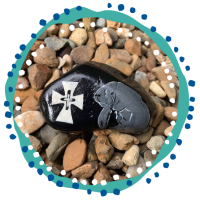
"As we journey together with the Aboriginal and Torres Strait Islander people and community, we hear but rather listen, we look but rather see, we talk but rather yarn."
Our work in action
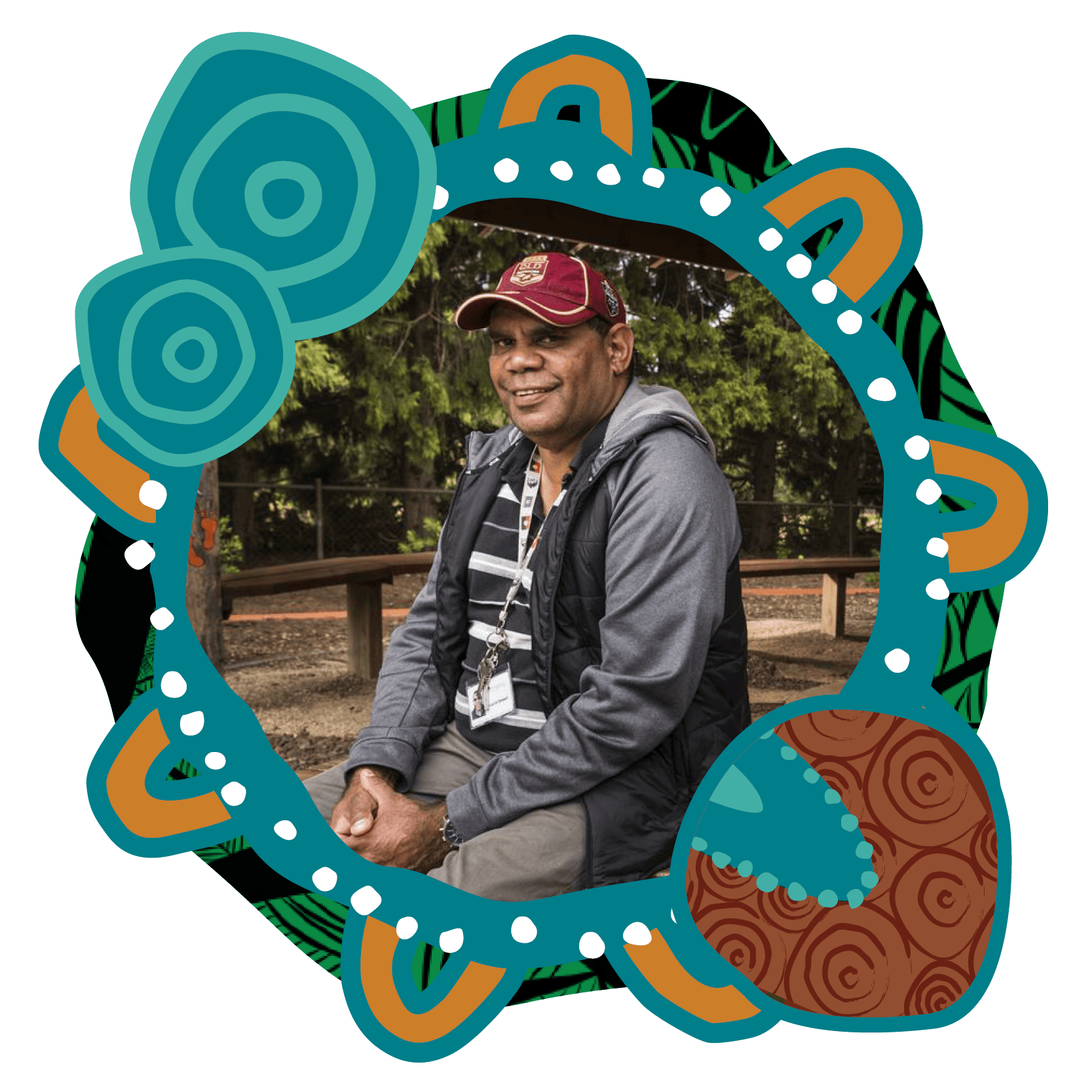
Laurie Stewert has been part of the Mercy Community family since 2008 and during this time, has created a strong inclusive culture within our workplace.
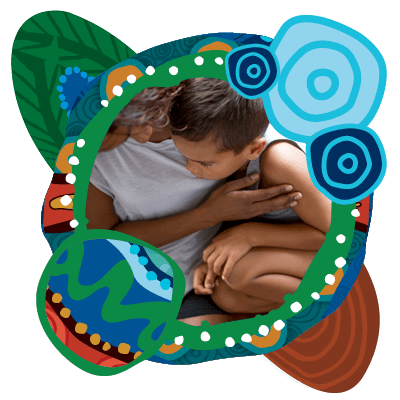
Read about Christina*, her escape from domestic violence and how our Family and Child Connect services played a role.
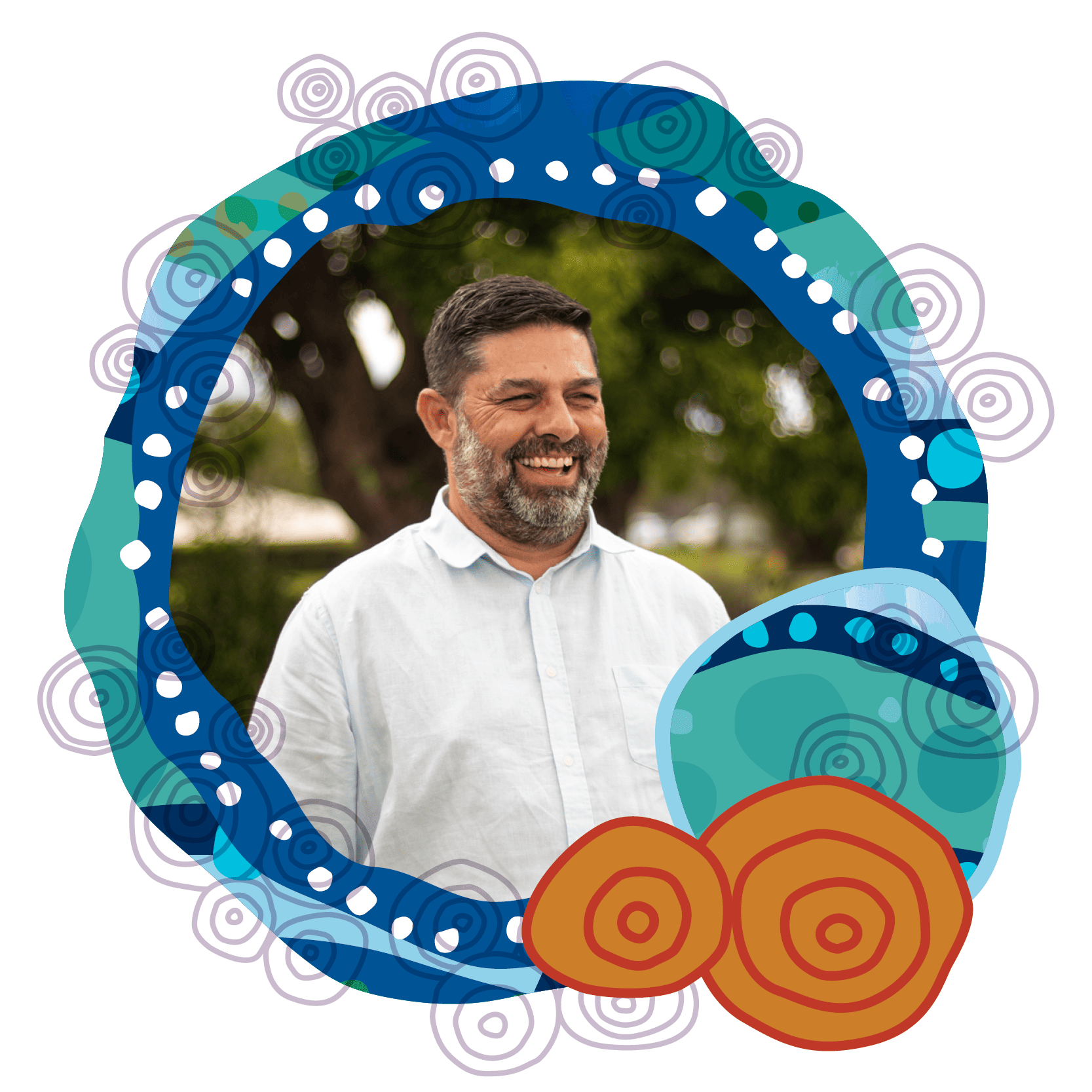
Meet Barry Lenihan, our General Manager, First Nations.
About our RAP artwork
For this, our first Reconciliation Action Plan (RAP), we commissioned original artwork from local artist Shara Delaney — descendant of the Noonuccal, Ngugi and Goenpul clan groups of Quandamooka that is located on the east coast of Brisbane. In the spirit of reconciliation, we commence the journey through our commissioned work with both an Aboriginal and Torres Strait Islander representation.
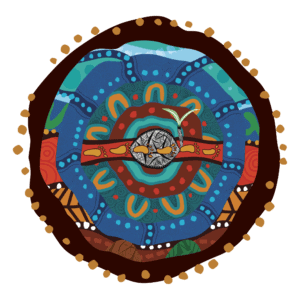
Artist: Shara Delaney
My name is Shara Delaney. I’m a descendant of the Noonuccal, Ngugi and Goenpul clan groups of Quandamooka that is located on the east coast of Brisbane. I grew up in the Redlands and always maintained my connection to country. I find the importance of belonging and having a relationship with the land and sea. Having a sense of community has always been important to me. Being able to engage with community through art as a cultural practice brings me joy.
In this design features a main circle representing the Mercy Community. It is connected to country through the services they provide. The ‘U’ shapes within the circle symbolise people coming together, supporting one another. The goal to help others. Behind the main circle we have colours of the land and sea. It is a reminder and to acknowledge Aboriginal and Torres Strait Islander Peoples strong connection to country. It also emphasizes Mercy’s focus on the services throughout the communities, whether that be in urban or regional areas. The orange path in the centre is showing the journey of our people moving forward together. The six symbols at the bottom represent Mercy’s Brand Values: Mercy, Acceptance, Excellence, Dignity, Empowerment and Integrity. Each style is unique and I specifically created three arches that link in with the brand values which are ‘Me, My World and The World.’
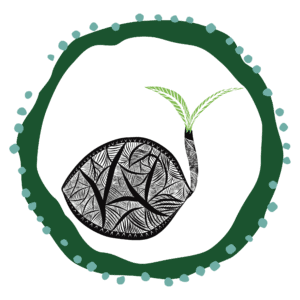
Artist: Harry Pitt
Infant Coconut
My name is Harry Pitt and I am employed with Mercy Community as the Aboriginal and Torres Strait Islander Cultural Lead. My lineage is from the Torres Strait Islands, my mother is from Erub and my father is from Mer and my totems are the Beizam (Shark) and Nam (turtle). I have built my knowledge and experience from a variety of roles and employment opportunities across remote, rural and urban settings. I continue to learn my culture, and share with others across this diverse nation we call Australia.
My artwork ‘the infant coconut’ shares my affiliation to my kinship, my family and ancestors. Growing up in my community, our foods, art and life was influenced by this tree of life. The coconut tree experiences many phases of growth, its root, trunk and leaves all share a story, forever growing and giving back, mirroring a life cycle it has defined its place and purpose in community and as a super food.
The infant coconut as a cultural metaphor shares the new life with all the knowledge of the community. It is born from the tree, unique to itself. This sapling has the genetic links, in physical and spiritual life taking with them the history and knowledge from the host. The plant is much more, in cultural essence – it can provide you with a living overview of a family, a community and time itself.



